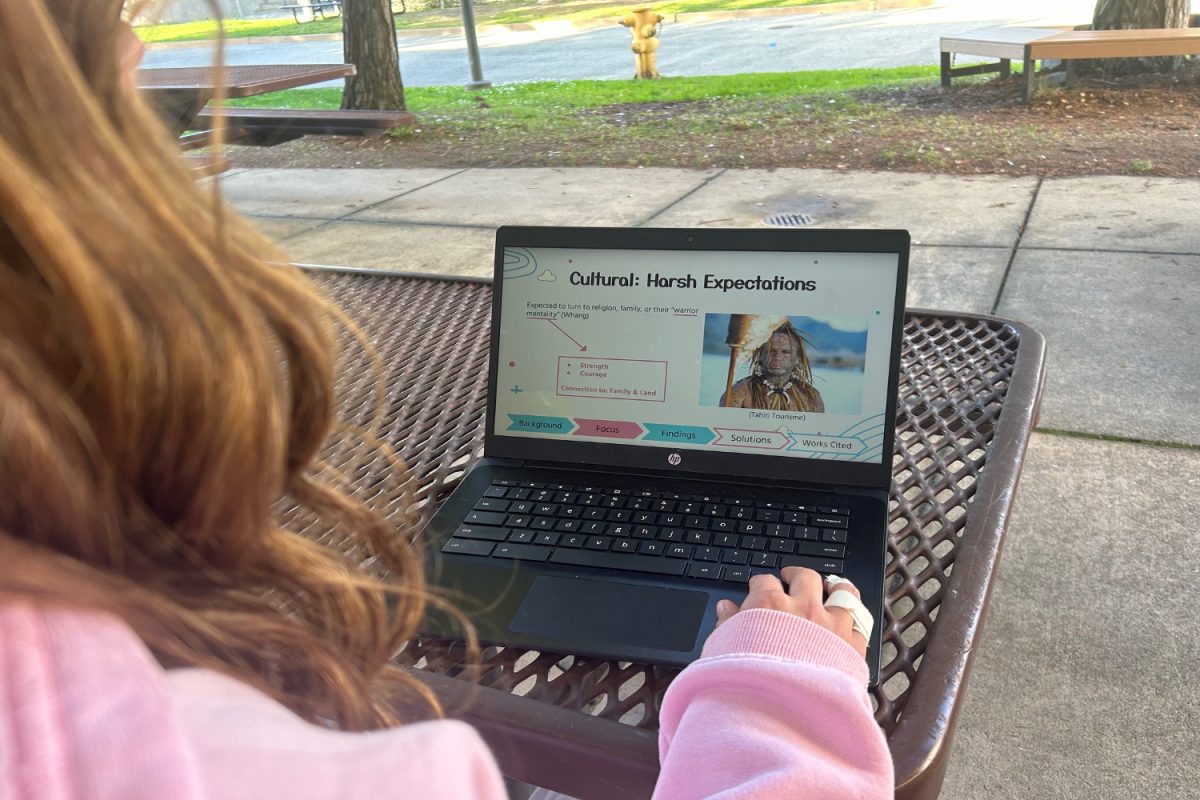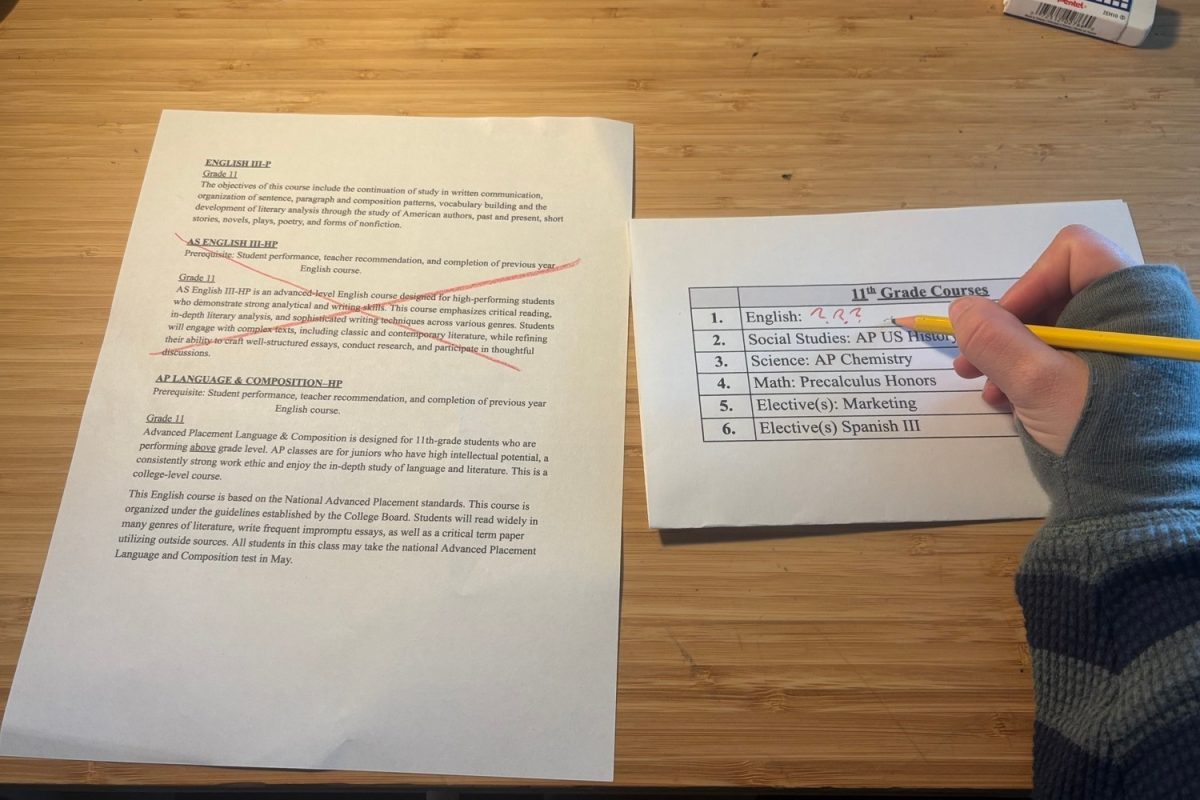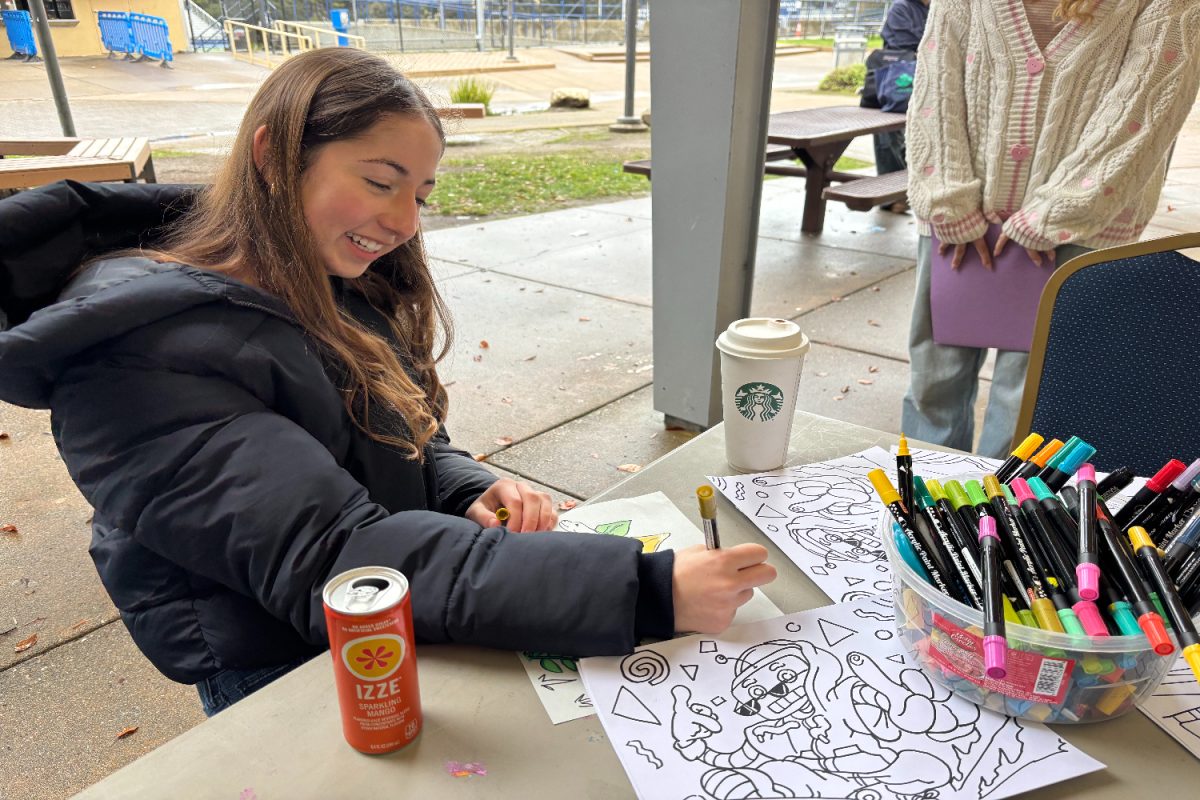The increasing pressure to take Advanced Placement, or AP classes, is causing Carlmont students to challenge themselves next year, often enrolling in three to five AP courses at a time.
With the third quarter coming to a close, Carlmont’s counselors have begun meeting with current freshmen, sophomores, and juniors as students decide their next year’s classes. However, many students are choosing to take a harder route next year — stacking up on AP classes.
Advantages of AP classes
“AP classes can give students an opportunity to learn the material at a deeper level, develop strong academic skills to prepare for college-level work, and potentially earn college credits,” said Carlmont counselor Kimberly Miller.
Despite being seen as “advanced,” many students are choosing to take more AP classes than regular classes, greatly increasing their workload.
“I decided to take so many AP classes because I was actually interested in many of the STEM-related topics, but I also wanted course rigor for colleges,” said Carlmont junior Krish Morajkar.
Morajkar plans to take 12 AP classes in total and is currently taking six AP classes as a junior.
“Whether or not an AP class prepares you for college depends more on the teacher than the fact that it’s an AP course with AP content,” said Carlmont alumna Brenda Yan.
Yan is currently a freshman at the Rose-Hulman Institute of Technology and enjoys her time outside of classes, saying she isn’t as stressed as she was in high school.
“The AP classes honestly had a bigger effect when I started college versus during admission because of all the transferred credits,” Yan said.
Carlmont has thousands of students, and every single one has a different mindset and workload, so there is no “ideal” amount of AP classes that are allowed to be taken.
“For some students, taking one AP class can be a huge challenge, while others seem to take four or more without much problem,” Miller said.
The pressure to take APs
Throughout the country, high school students are experiencing rising pressure and increased academic stress, according to the World Health Organization.
This stress can come from many factors, such as parents, college, peer pressure, and more.
“Students feel a lot of pressure for college admissions and feel like AP classes are necessary for admissions,” Miller said.
She notes that college admissions are heavily emphasized for rising juniors and seniors, with some students solely focused on them, especially with the rising competitiveness and cost of colleges.
“I think most of the pressure comes from myself because I want to see how much I can handle. It sometimes feels like a competition because I know others with similar rigors, but I can’t feasibly take any more APs due to prerequisites, so I tend not to worry,” Morajkar said.
Moreover, some students experience familial stress as well, with parents and relatives pressuring them to push themselves.
“I remember that my mom wasn’t happy with me because she believed I wasn’t fulfilling my potential by not taking even more APs,” Yan said.
Managing AP classes
Often, students with a heavy AP course load tend to feel overwhelmed in other aspects of their lives, including athletics, sleep, extracurriculars, and their social life. Additionally, mental health issues arise as a result of the constant studying and college-level classes.
“When a student’s life becomes unbalanced because of academic stress, it can trigger the onset of anxiety and depression. Symptoms may include but are not limited to changes in sleep, eating, motivation, productivity, mood, and concentration,” said Carlmont’s Wellness Center therapist Shelley Bustamante.
In addition, AP classes are extremely time-consuming, with workloads similar to college courses.
“Doing my homework as soon as I get home is helpful because it’s easy to waste a lot of time procrastinating. Overall, my stress level has been pretty low because I plan out my week pretty well beforehand,” Morajkar said.
When students are so focused on their work, they may forget to enjoy simple aspects of their teenage life, such as socializing.
“Making an effort to socialize or just simply being around friends helps to reduce the strain of your classes. Finding classmates to study with can help make the class more bearable with others in a similar situation,” Yan said.
Even with socialization, many students still continue to feel stressed out and pressured. Asking for help can be difficult, but it is a step that can change a student’s mental health and ultimately impact their grades, whether it is from a teacher, therapist, or family member.
“I would advise the student to take a break and organize their thoughts and feelings. Talk to someone that they know who understands them and their situation, and look for the mental health support available to them,” Bustamante said.












